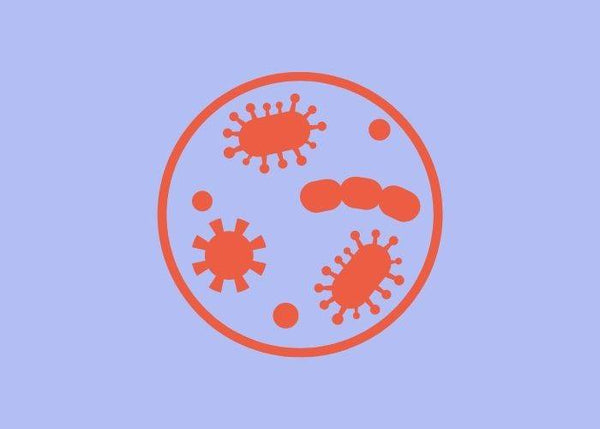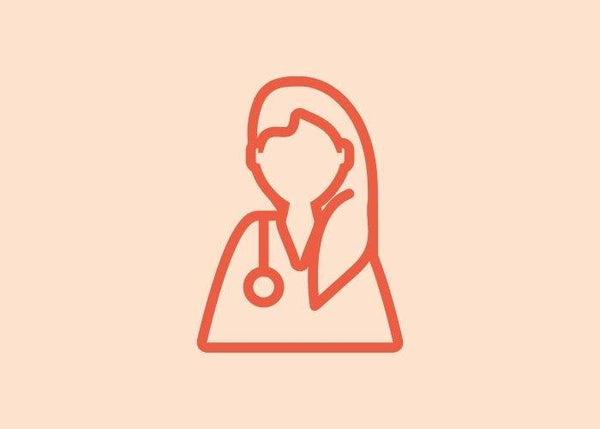The 3 components everyone should know about recurrent UTIs
Your urogenital health (that is, your vaginal health and bladder health) is all related.

Why do some people get more UTIs than others? Learn more about your urinary tract health and the recent study behind UTI frequency.

The link between our physical and mental health explained by four mental health specialists.

The biological occurrence of a UTI is the same in both males and females: bacteria ascend up the urinary tract through the urethra and cause an infection. About 20% of all urinary tract infections (UTIs) occur in men and up to 14% of males will experience at least one UTI in their lifetime.

Here’s the ultimate guide to the function of the 4 major parts of the urinary tract.

Catheters can be used when there are complications with the process of urinary drainage. These complications can be long-term or short-term, and are generally used for therapeutic or diagnostic reasons to support the process of urinary drainage. UTIs attributed to catheter use are one of the most common infections acquired in healthcare facilities (8). In fact, approximately 75% of UTIs acquired.

Anecdotal evidence suggests that people with recurring UTIs swear by hydration as a preventative measure and studies have shown that drinking more water was associated with decreased occurrence of UTI hospital visits.

UTIs can come into play in all stages of life. However, in our older years, UTIs can not only present differently but can occur for different reasons.

As we age there are many biological changes that occur, which can increase your risk of UTIs.

From anecdotal, clinical, and survey data, you can get a UTI in a few different ways.

You are not alone if you think you are getting too many urinary tract infections (UTIs). Frequent (or recurrent) UTIs are common, especially in women.

How bacteria use biofilms to protect themselves from antibiotics, the immune system, and cause recurring UTIs that are difficult to fight.

Let’s be clear – leakage of urine is not an inevitable part of aging. Incontinence is a very common problem that affects up to 25% of women.

Check out some of the most common UTI questions Dr. Carrie Aisen has been asked and things you should know before treating one.

Doctors prescribe prophylactic antibiotics to guard patients from bacteria that cause UTIs, but, what’s the catch?

There are many available methods for testing for urinary tract infections (UTIs). This is an overview of the current approaches to testing.

The last decade has brought many milestones in the world of UTI research.

UTIs can become a big problem for women starting in menopause, and getting one UTI can mean a high-risk for more.

IC can possibly be explained by two types of recurrent UTIs: UTIs caused by hidden bacteria and UTIs caused by uncommon bacteria.

Between swimming and traveling, you may find yourself more prone to urinary tract issues this season.

The UTI glossary is home to the terms you may have seen throughout your journey with urinary health.

Meet Uqora Medical Advisor and Urologist, Dr. Katherine Klos. Dr. Klos understands the multidimensional aspects of urologic care and specializes in recurrent UTIs, interstitial cystitis, pelvic pain, prostatitis and erectile dysfunction. Learn more about her approach to UTI management and her expertise here.

Meet Heather Fraebel, PT, DPT, a Pelvic Floor Physical Therapist in Boulder, Colorado. Here, she shares her view on treating chronic UTIs. She treats women and men addressing a variety of pelvic health dysfunctions involving the urinary, bowel, and reproductive systems. She has a special interest in UTIs as she has battled with recurrent UTIs herself.

Meet Kristen Schreiber, MMS, PA-C, a Physician Associate at Urology of St. Louis in Missouri. Here she shares her view on treating chronic UTIs.

Dr. Payal Bhandari, Functional Medicine MD, reviews which foods are good (and bad) if diagnosed with IC.

There are many possible kinds of treatments for UTIs. But in this post, we discuss antibiotic alternatives for recurring UTIs.

According to the Center for Disease Control (CDC), over 30% of antibiotics are prescribed unnecessarily in outpatient settings. Overuse of antibiotics in humans has led to the rise of “superbugs”.

Most people think that all UTIs must be treated with antibiotics. But, there is research suggesting that this is not necessarily the case.

Antibiotics have numerous side effects and pose the risk of building antibiotic resistance.

Your urogenital health (that is, your vaginal health and bladder health) is all related.

Maintaining vaginal health can be a pivotal role in urinary health. We interviewed Dr. Carrie Aisen, a San Diego-based Urologist, so she can give you a closer look into how vaginal health can impact urinary health.

Rheumatoid arthritis (RA) is a chronic inflammatory disorder. If you are an older woman living with RA, many factors can add up to create the perfect conditions for a urinary tract infection (UTI). Learn about the association.

Menopause is often the term used to capture the entire menopause journey. Surprisingly though, menopause only lasts one day in a woman’s life - the 365th day after your last period. Here, we explain the various stages and what to expect on the menopause journey.

Considering a vaginal probiotic, lubricant or feminine health products? Dr. Alyssa Dweck shares her favorites.

These symptoms could be an indication of a more complex health issue at play. Dr. Bhandari explains what signs you should not ignore.

Have you heard of seed cycling? It’s picking up steam in the holistic blogosphere. While we’re not yet convinced, we are intrigued.
By applying the basics of mindfulness to your sex life, you can experience greater pleasure, connect more deeply with your partner, and feel more satisfied over all.

Does your period show up whenever it pleases? While irregular periods are common, it’s worth paying attention to your cycle since irregular periods can sometimes signal bigger health issues.

Here are the top three ways your period products could be (and probably are) affecting your vaginal health.

It’s an important fact we don’t talk about nearly enough: Menopause — and perimenopause, that period that starts years before menopause begins — can really affect mental health.

We’re reflecting on how females are slowly but surely changing the field of urology.

Nurturing your hormonal health is fundamental to a healthy body and we’ve put together easy steps to do so in your daily routine.

I’ve seen at least 8 gynecologists over the course of my life, and all of them were women. It’s something I never thought twice about. Of course my gynecologist would be a woman.

There are certain foods that you can eat that naturally provide energy without the negative side effects of added sugars and chemicals.

IUDs have become more and more popular. Planned Parenthood reported a 75% spike in IUD use among its patients between 2008-2012. So what is the deal?

Why are urinary tract issues like UTIs, frequent urination, and incontinence so much more common during and after menopause? We’ll walk you through explanations and what you can do to improve overall urinary tract health.

Healthy ovulation includes two parts: the release of an egg and sufficient hormone levels post-ovulation.